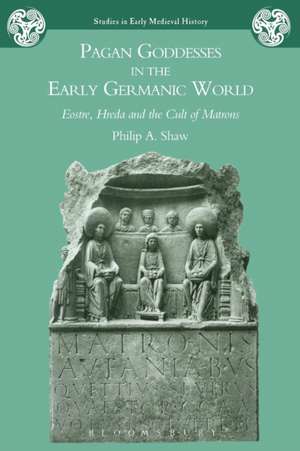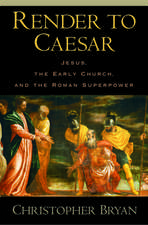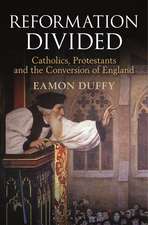Pagan Goddesses in the Early Germanic World: Eostre, Hreda and the Cult of Matrons: Studies in Early Medieval History
Autor Philip A. Shawen Limba Engleză Paperback – 24 aug 2011
Preț: 175.98 lei
Preț vechi: 205.56 lei
-14% Nou
Puncte Express: 264
Preț estimativ în valută:
33.67€ • 35.25$ • 28.03£
33.67€ • 35.25$ • 28.03£
Carte tipărită la comandă
Livrare economică 31 martie-14 aprilie
Preluare comenzi: 021 569.72.76
Specificații
ISBN-13: 9780715637975
ISBN-10: 0715637975
Pagini: 128
Ilustrații: Illustrations
Dimensiuni: 156 x 234 x 9 mm
Greutate: 0.2 kg
Editura: Bloomsbury Publishing
Colecția Bristol Classical Press
Seria Studies in Early Medieval History
Locul publicării:London, United Kingdom
ISBN-10: 0715637975
Pagini: 128
Ilustrații: Illustrations
Dimensiuni: 156 x 234 x 9 mm
Greutate: 0.2 kg
Editura: Bloomsbury Publishing
Colecția Bristol Classical Press
Seria Studies in Early Medieval History
Locul publicării:London, United Kingdom
Caracteristici
Suggests a model for further research into the linguistic evidence for traditional beliefs among the Germanic-speaking communities of early medieval Europe
Notă biografică
Philip A. Shaw is Lecturer in English Language and Old English, University of Leicester, UK.
Cuprins
Acknowledgements 1. Introduction: The Footprint of Pre-Christian Worship 2. Linguistic Models and Methods 3. The Romano-Germanic Religious Landscape andthe Early Middle Ages 4. Eostre: Pan-Germanic Goddess or 'Etymological Fancy'? 5. Hreda 6. Conclusion: Roles of the Northern Goddess? Notes Bibliography Index of Words General Index
Recenzii
It offers a fresh and productive method for examining fragmentary data for Anglo-Saxon (and, by implication, other pre-Christian) religion. It is a welcome contribution and should find a place in university libraries and on the shelves of early medievalists in general.
Descriere
This book considers evidence for Germanic goddesses in England and on the Continent, and argues on the basis of linguistic and onomastic evidence that modern scholarship has tended to focus too heavily on the notion of divine functions or spheres of activity, rather than considering localities and social structures.






















